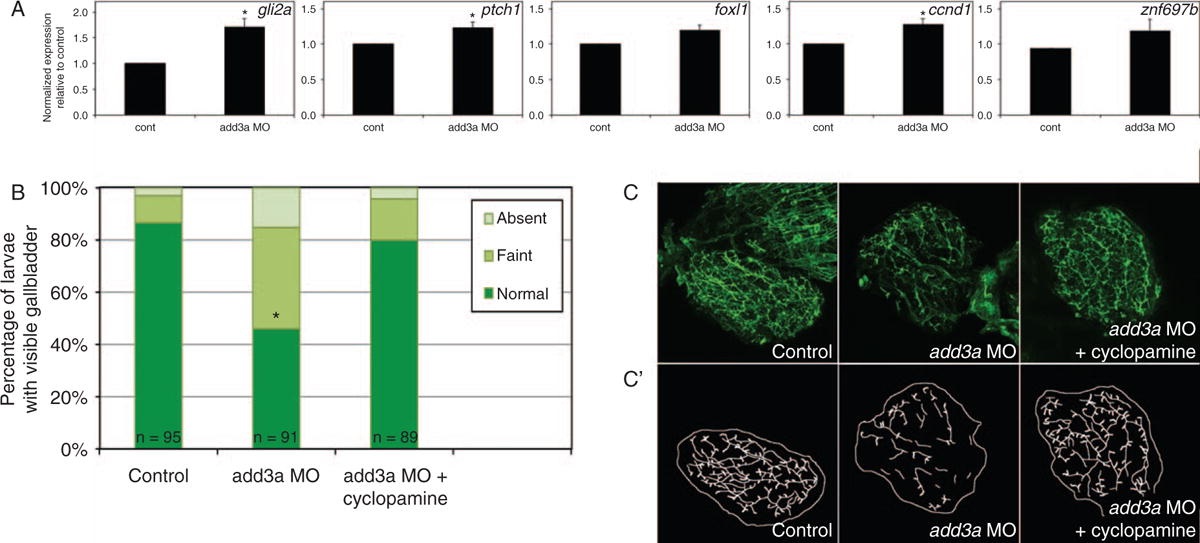Fig. 3
Studies of the Hedgehog (Hh) pathway in add3a morpholino-injected larvae. A, Quantitative RT-PCR of Hh pathway targets in control (cont) or add3a MO-injected larvae at 5 days post fertilization (dpf). Note that there is an increase in expression of all 5 genes shown (gli2a, ptch1, foxl1, ccnd1, znf697b), although only gli2a, ptch1, and ccnd1 demonstrate a significant difference (*P ≤ 0.05 by Student t test). B, C, Cyclopamine treatment rescues biliary defects in add3a morpholino-injected larvae. Wild-type fertilized oocytes were injected with MO directed against add3a or control. At 2 dpf, cyclopamine or vehicle was added, and at 5 dpf, larvae were incubated in the fluorescent lipid PED6 and assayed for gallbladder uptake, and then fixed and stained for cytokeratin to document biliary anatomy. B, Percentages of control (cont), and vehicle or cyclopamine-treated add3a MO-injected larvae with normal, faint, or absent gallbladder visibility, reflecting PED6 uptake and thus biliary function. There is a significant decrease in biliary function in the add3a MO-injected larvae (*P ≤ 0.0001 by chi-square testing), which is significantly different from the cyclopamine treated larvae, with the same p-value. C, Confocal projections of cytokeratin immunostainings of livers from 5 dpf larvae injected with control, add3a MO, or add3a MO with cyclopamine. C') Schematic tracings of the cytokeratin stainings shown in (C). Original magnification ×400. MO = morpholino antisense oligonucleotide.

